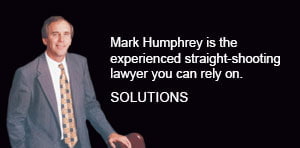


A problem for Kimble County insurance lawyers is knowing and being able to predict how a Judge will interpret an insurance policy. This topic is discussed in a State Bar of Texas, Insurance Section article. The article is titled, The Tentative Draft Of The Restatement (Third) Of Liability Insurance: How Could It Affect Texas Insurance Law? Under Section 5 of the Restatement of Insurance (Third), a party may waive a right under the policy if, with actual or constructive knowledge of the right, the party (a) either expressly relinquishes the right or engages in conduct that would reasonably be regarded by the other party as relinquishing the right, and (b) that waiver is communicated to the other party. Waiver permits the enforcement of terms different from the original contract or bars enforcement of such terms without creating a new contract. A party may waive only terms that benefit it; thus, the insured cannot waive policy conditions. The law of agency determines when the agent’s words or conduct binds the principle and waives its rights. Waiver necessarily requires extrinsic evidence. The insurer can waive policy conditions or exclusions post-lost, e.g., undertaking to defend without reserving a right to deny coverage. This changes the general rule of no post-loss waivers of exclusions or lack of coverage. The risk that policyholders may lie about pre-loss promises is balanced against the potential harm to them for false assurances of coverage. Waiver is not limited to technical deadlines and conditions. However, the general rule is that waiver cannot create coverage where none would exist absent the waiver; i.e., waiver cannot expand the covered risks. That general rule continues to apply claims the insurer waived an exclusion or agreed to cover liability from an unscheduled auto. In those cases, the insured must prove estoppel under section 6. Once communicated, the waiver is binding — unless retracted. If the waiver involves a condition, there must be sufficient time after the retraction is communicated to fulfill the condition. If the policyholder detrimentally relied, there can be no waiver. Under Section 6 of the Restatement, a party who makes a representation or promise that can be reasonably expected to induce detrimental reliance to another party to the policy is estopped to deny the representation or promise if the other party reasonably and detrimentally relies. The function of estoppel is the protection of reliance interests. This distinction between estoppel and implied waiver is detrimental reliance. Comment e acknowledges the prevailing rule that estoppel cannot expand coverage, but asserts coverage can be expanded if statements or conduct induces detrimental reliance. Estoppel can arise from pre-loss misrepresentations that the policy covers risk that the action terms exclude, provided the insured relied and the promised coverage was possible. Because it is possible that the insured can reasonably rely on post-loss representations and promises, estoppel applies to them as well. Post-loss statements and conduct may give rise to estoppel that expand coverage. Post-loss statements may be as misleading and induce reasonable reliance as pre-loss misrepresentations. If there is reasonable reliance detrimental reliance on representations or promises, coverage can be expanded beyond the risks defined by the policy; e.g., an insurer that undertakes to defend without reserving its rights cannot belatedly raise an exclusion. Section 6 melds misrepresentation of facts and promissory estoppel. It applies to both factual assertions and promises of future conduct. The policyholder generally may rely on the agent’s representations and promises that are contrary to the policy and the insured never reads the policy. An exception to this rule exists when the policyholder reasonably should be aware the agent is inviting collusion. None of the above is necessarily easy to understand even for the most experience lawyer and some of it is not even law yet, but is only being discussed. It is relevant in understanding what the courts do now and what they may do in the future regarding policy interpretation.
February 26, 2017 Updated: January 20, 2017 9:26 am Comments are closed. Contact Us Free Initial Consultation 972-263-3722 Office Hours Mon - Fri: 8am - 6pm Sat - Sun: By Appointment



This site is protected by reCAPTCHA and the Google Privacy Policy and Terms of Service apply.
Please do not include any confidential or sensitive information in a contact form, text message, or voicemail. The contact form sends information by non-encrypted email, which is not secure. Submitting a contact form, sending a text message, making a phone call, or leaving a voicemail does not create an attorney-client relationship.